
Life Stories Archive and Media
If you need comment in relation to life storytelling, please contact our President Deborah Gough on 0417 336 997 or send an email to com@lifestoriesaustralia.com.au
Life Stories Australia on AI and the Productivity Commission
Life Stories Australia believes there are both benefits and pitfalls in using AI to carry out our craft. We have submitted our views to the Productivity Commission inquiry and seek to protect our clients and our stories.
WA Life Stories Australia member Rhuwina Griffiths talks about the craft
In this podcast, Rhuwina Griffiths talks about all things life stories with Writing WA CEO Will Yeoman. Writing WA is the premier body for writers in Western Australia.
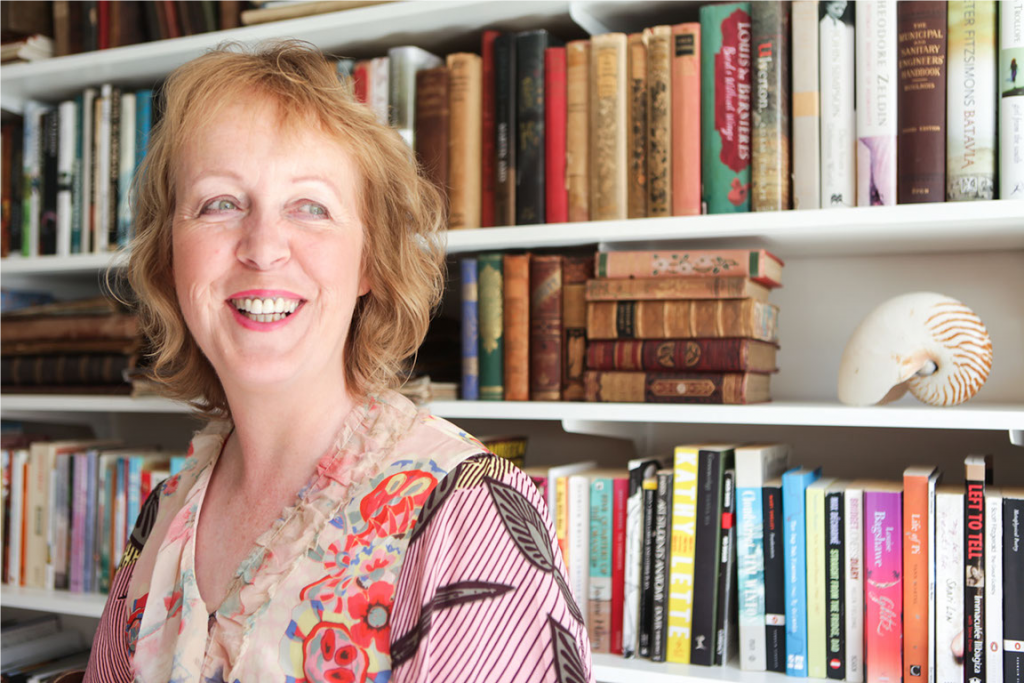
3CR podcast with LSA president
Life Stories Australia’s president Deborah Gough got a chance to describe the work of life story professionals with 3CR radio host Dr Joe Toscano. We spoke about versions of truth, perspective, the process of interviewing and producing a life story and our code of ethics.
3cr radio interview with Joe Toscano.
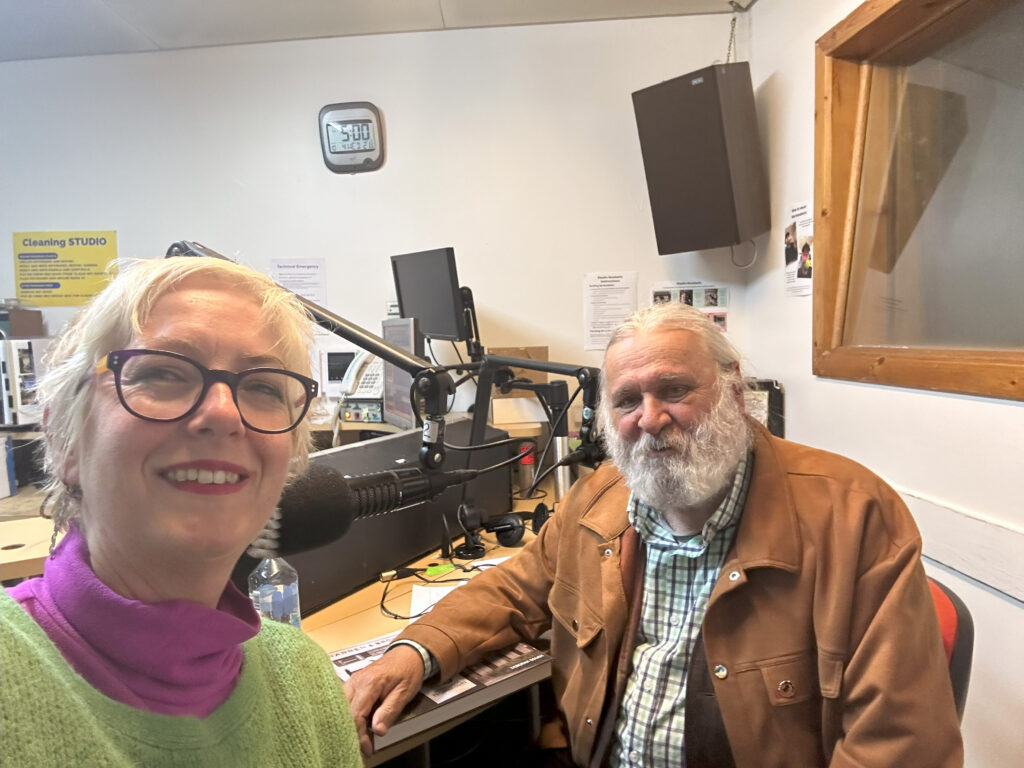
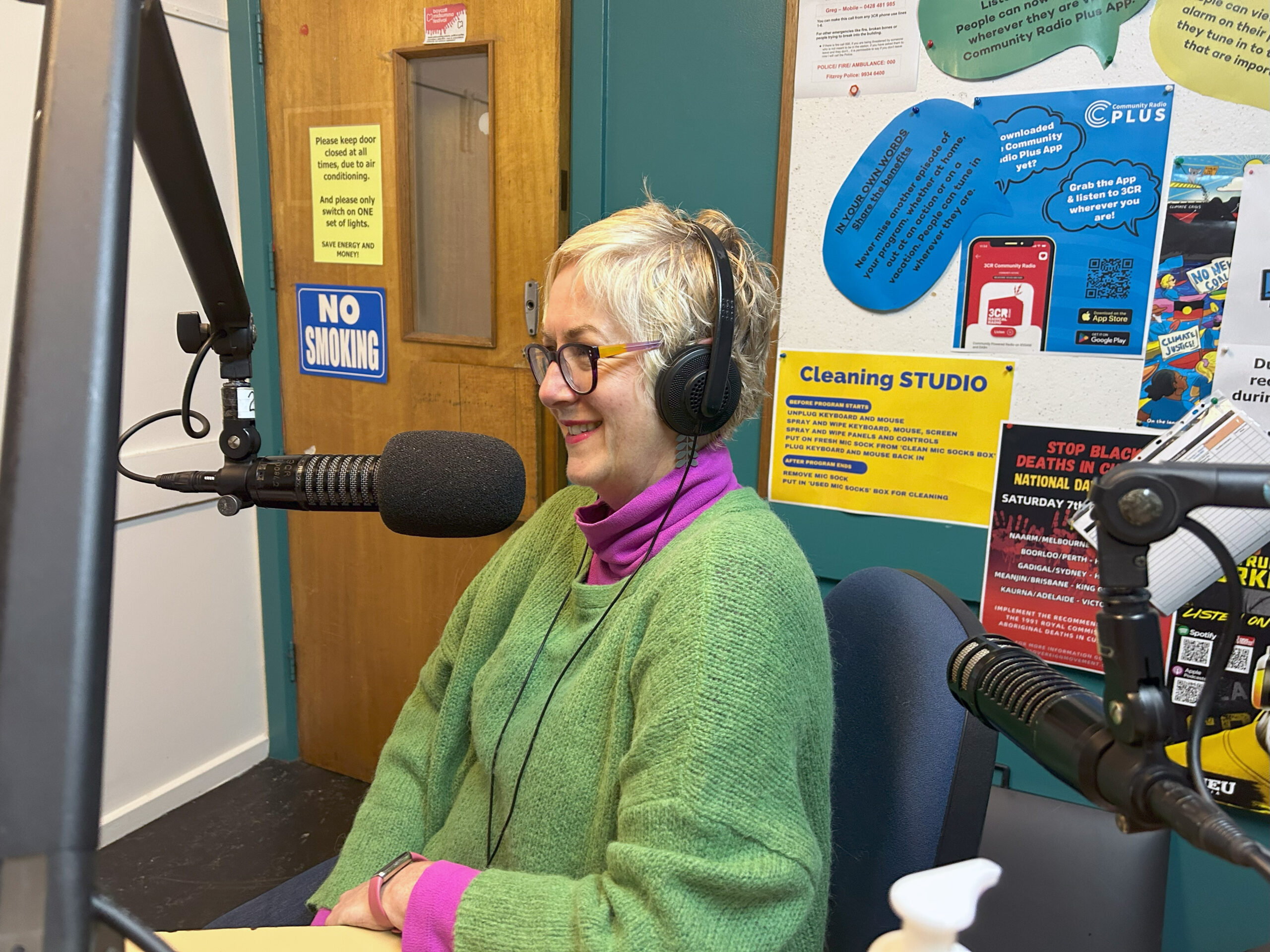
Life stories in audio and in full
Here’s a recent news piece in The Age and Sydney Morning Herald written by Tom Cowie profiling the importance of capturing Life Stories. Tom talks to two audio journalists taking the career plunge into life story telling and also interviews Deborah Gough, Life Stories Australia president about the industry and how telling a life story to a professional can lead to fuller, more detailed family histories.
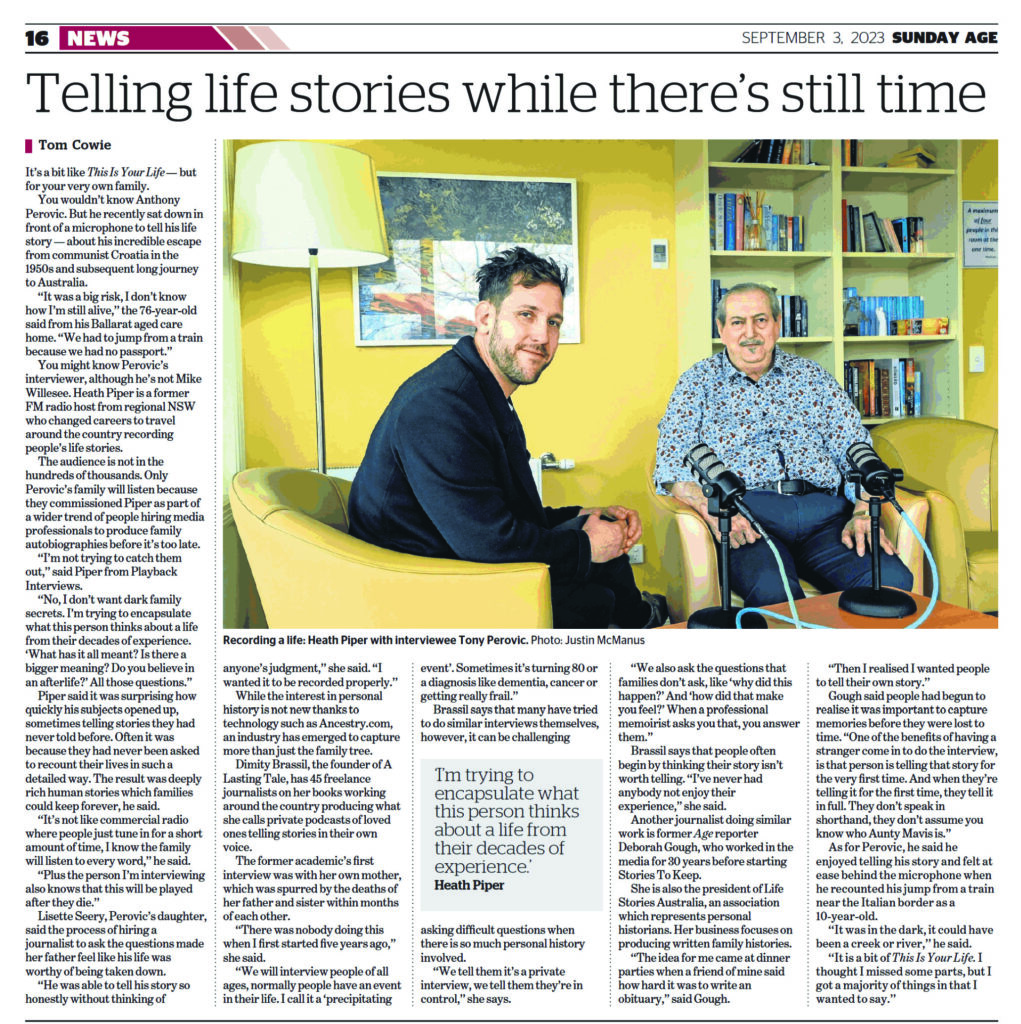
Life stories told in fewer words
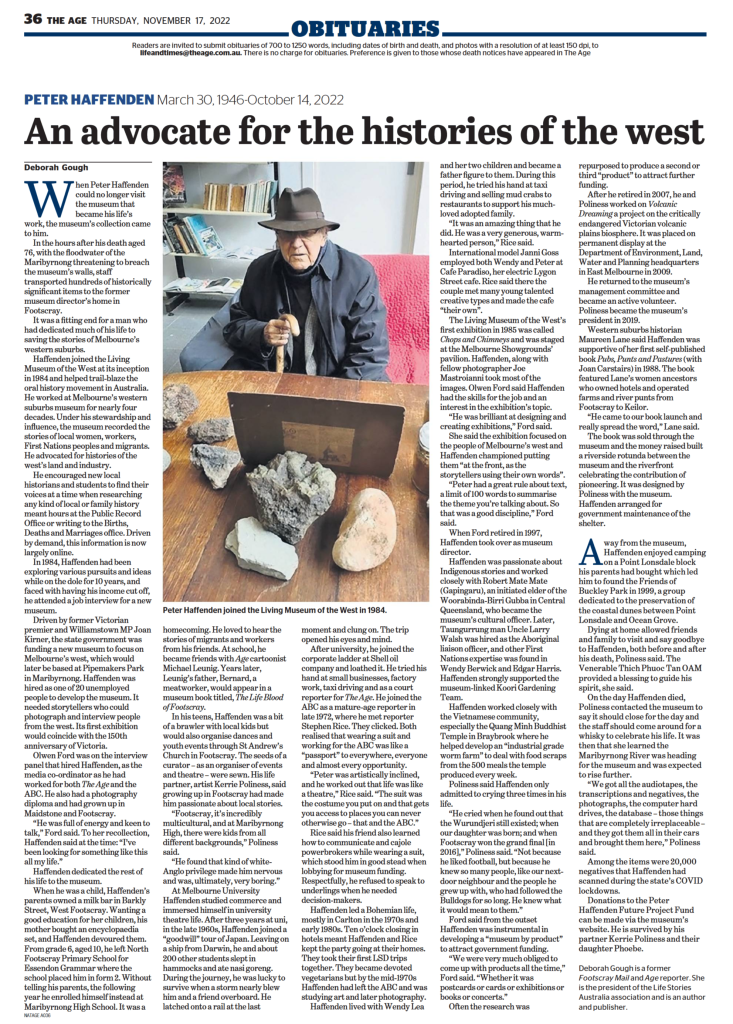
Saving history to tell our stories
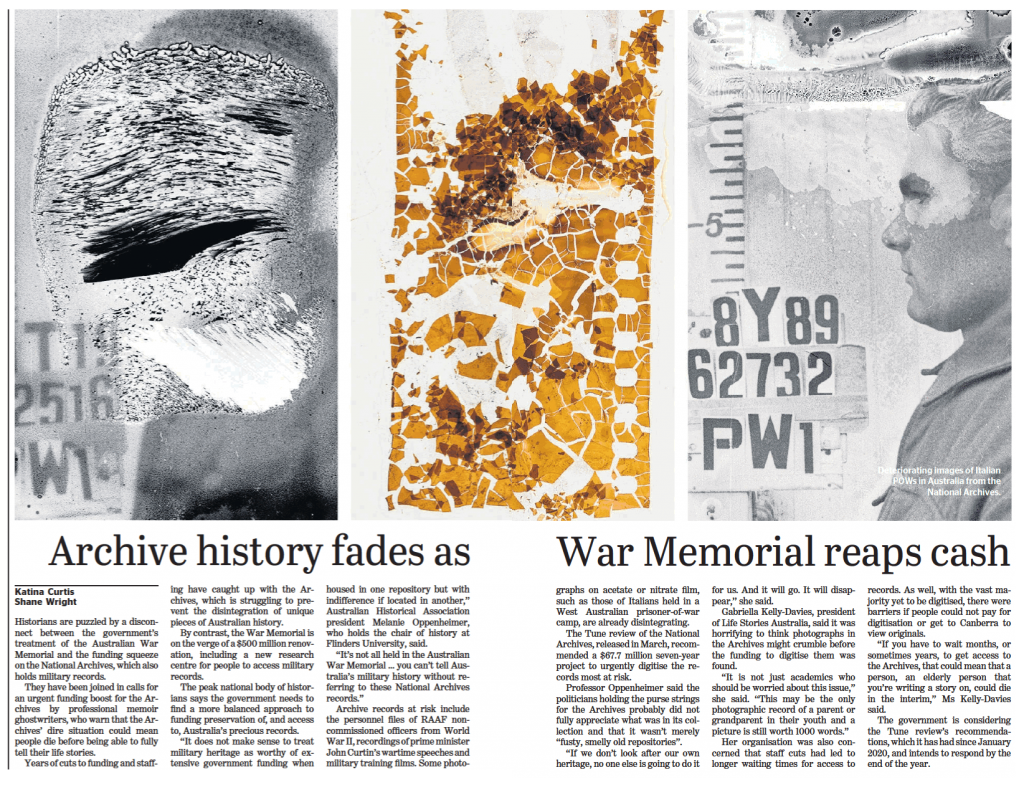
The Age, Nine Publishing, May 7, 2021.
Media release: Life Story Tellers alarm at National Archives risk
Families seeking their relatives’ wartime records, immigration stories and photos should be alarmed at the impending disintegration of National Archive of Australia records.
Life Stories Australia, the body representing professional life storytellers, is anxious at the news that some records could be ruined by age and obsolescence before they are digitised.
A backlog of unexamined and undigitised records was interfering with people seeking clues to their own oral histories, the organisation’s president Gabriella Kelly-Davies said.
Delays and sometimes poor online access were putting unnecessary hurdles in front of people who wanted to write their memoirs.
LSA called for an immediate and ongoing injection of Federal funding to remedy the situation.
“We really feel strongly that it is not just academics who should be worried about this issue,” Ms Kelly-Davies said.
“It is potentially an issue for any Australian or migrant at any given time,” she said.
LSA was particularly worried about the disintegration of post-1950s acetate photographs and World War II nitrate negatives of servicemen and women which could enrich a book or video of a life story, she said.
“These may be the only photographic record of parent or grandparent in their youth and a picture is still worth 1000 words,” Ms Kelly-Davies said.
Archive documents regularly revealed clues to a person’s oral history and could provide clarity where memories were fading, she said.
Unless the archives’ undescribed immigration files, or the nitrate negatives of Snowy Mountain Scheme workers were digitised, descendants of migrants and other workers may never know they exist, Ms Kelly-Davies said.
“Without captions how do you request – and pay for – a photo that may or may not have your relative in it? If they are digitised you can look at them at your leisure in the hope of striking a recognisable family member, but without that it is hopeless,” she said.
“It’s pretty horrifying to think the negatives may crumble before the funding is found to digitise them,” she said.
Universal and timely access to records were imperative, she said. Often families wanted books and videos to mark a milestone. Unless another person had already requested and paid for a record to be digitised, the chances were it would take 30 business days or longer for them to get access, plus the cost. In some cases, people conducting research were asked if they could wait two to three years, their access would be free and digitised.
Ms Kelly-Davies said often a person engaged a life story teller when they or their parent’s memory was beginning to fade and archive documents could fill in the gaps and jog memories and waiting for information was not an option.
“In a digital age, we expect open access to files about ourselves and our family’s story. Trove is a good example of what people expect – using a search engine they can scour articles and gazettes for information,” Ms Kelly-Davies said.
“The National Archive is the vault holding the memories of Australia but the Federal Government has the key to opening up – and digitising – that vault,” she said.
Ms Kelly-Davies said some people were only now learning their families were part of the Stolen Generation, yet they could not view the royal commission where relatives may have given testimony because it was currently on obsolete video technology.
“That testimony has an incredible power and if it is not digitised soon it is a lost chance for the nation to heal,” she said.
LSA member, Deborah Gough said she had used the soldier settlement records, war service records and, more recently, formerly secret wartime munitions’ correspondence to fill in the gaps left when those who had lived it had died.
“It is so satisfying to reveal to someone some detail from their parents’ lives that they always wanted to know through archive documents – it allows them to speak about a much-loved parent in a new way,” Ms Gough said.
“But it is pretty daunting to be faced with a screen that says a file is not yet examined, may be potentially withheld for secrecy reasons and that you need to wait 30 business days for a decision or access,” Ms Gough said.
“In some ways it is more daunting than being told you cannot have it in the first place say under an official secrets act,” she said.
- Life Stories Australia is a not-for-profit organisation. It is the only organisation representing professional story tellers.
- Life Stories Australia is dedicated to supporting the craft of life story writing and recording and supporting the professionals who do that.
Pass these stories on to those you love
Our latest social media campaign about the need to pass our stories down to those we know and love via video and the written word.
What are memoirs and how are they made
ABC Radio’s Libby Gore speaks to Life Stories Australia’s vice president Gabriella Marie Kelly-Davies about writing memoirs and how and why it is done.Finding a way to tell a story can be challenging
The secret to finding out family stories
The secret to finding out family stories
Your Biography founder Gillian Ednie and her son Daniel Ednie-Lockett talk about the value of discovering family stories in The Age.
“When you hear about people’s lives through the decades it really gets you to reflect on where you are… and what kind of life you want to live,”
– Daniel Ednie-Lockett
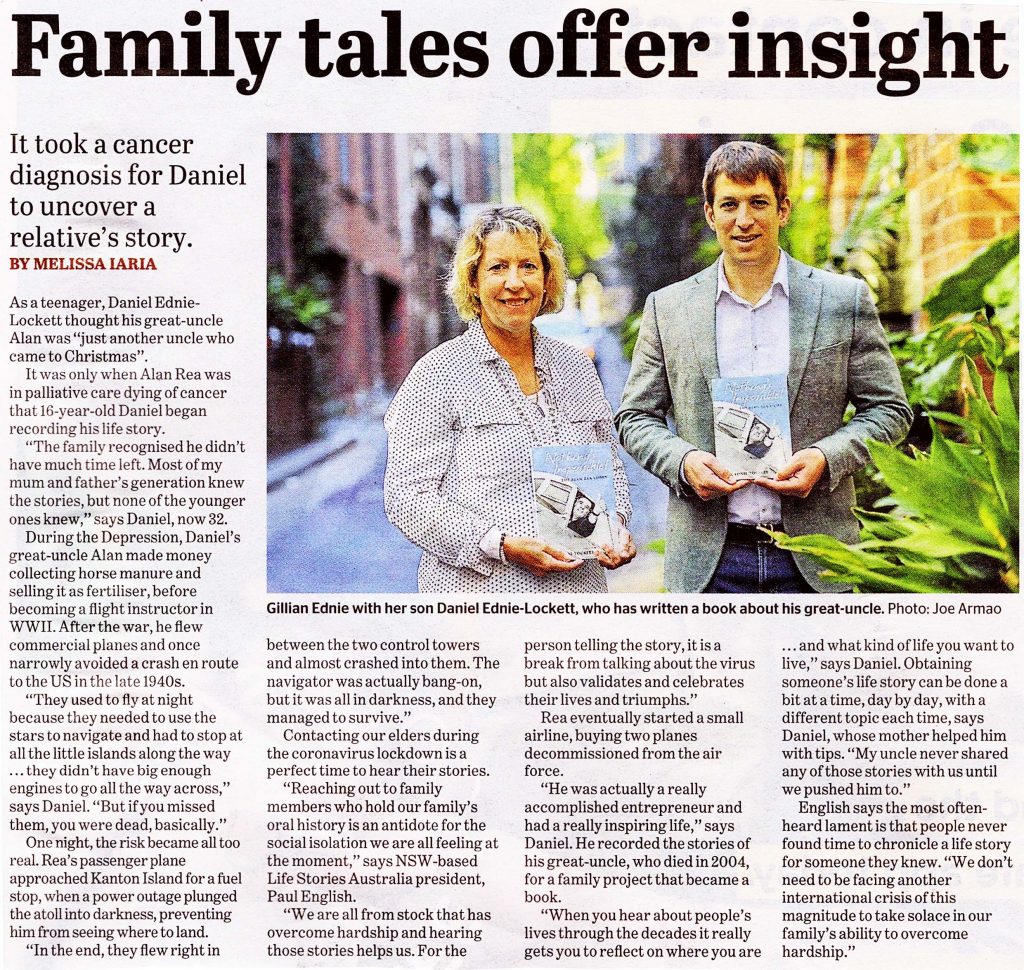
Radio Adelaide on the importance of life stories
LSA board member Heather Millar talks about the vital nature of getting your story recorded with a lovely example at the end of the interview. An isolation antidote in the time of coronavirus
An isolation antidote in the time of coronavirus
Families stuck at home should reach out to their elders to hear their own family’s life stories as a way to cope with the emotional strain during the coronavirus lockdown, Life Stories Australia has said.
Nursing homes and aged care facilities are turning to Skype and FaceTime to keep families in contact with each other during the lockdown, Paul English, President of Australia’s body representing life storytellers, said. He said it had never been more important to find out about your heritage and family story.
“Reaching out to family members who hold our family’s oral history is an antidote for the social isolation we are all feeling at the moment,” LSA President, Paul English said.
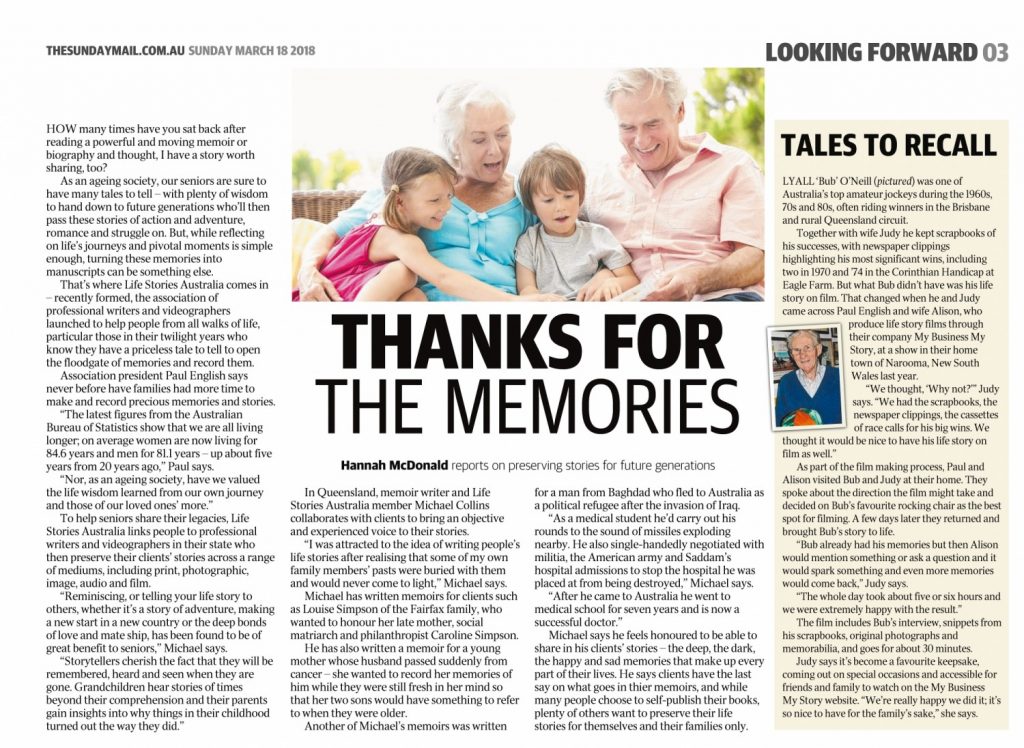
Here we have a collection of articles and resources.
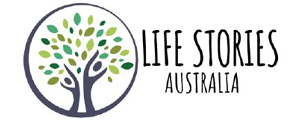
Follow Us